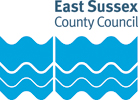Have your say on school admission arrangements for 2026/27
Overview
This consultation outlines the proposed admissions arrangements for East Sussex community and voluntary controlled schools from September 2026.
We are not proposing any changes to the admissions criteria. (See page 2 for more details and the opportunity to comment). Priory School and Parkland Junior School's criteria mirror those of the local authority. They will consider any comments made through this consultation.
There is a proposal to decrease the planned admission number at Pashley Down Infant School, Motcombe Community School and Wadhurst CE Primary School. At Pashley Down and Motcombe from 90 to 60 in both cases. At Wadhurst from 45 to 30. (Please read "Proposed admission numbers" found further down this page. You can comment on page 3)
The proposed co-ordination schemes for admission to Reception year, Year 3 at a junior school and Year 7 at secondary school 2026-27 is included. Also included is the In-Year scheme for the 2025-26 school year. (Please read the DRAFT co-ordinated schemes in the 'Related' section below before commenting on page 4)
We would particularly welcome your views on the above aspects of our proposals although all comments are welcomed on any element of the arrangements.
Why your views matter
This survey outlines the local authority's proposed admissions arrangements for the 2026-27 school year. Consultation begins on Monday 4 November 2024 and ends on Wednesday 15 January 2025 which satisfies the duty to consult for at least six weeks.
Final admission arrangements will be determined by 28 February 2025 and published by 15 March 2025 in line with statutory deadlines.
We strongly recommend that you read the 'Related' documents with care to fully understand the proposals.
Areas
- All Areas
Audiences
- Anybody with an interest
Interests
- Children and young people
- Communication
- Customer service
- Democracy and participation
- Disability
- Economic development
- Finances and spending plans
- Health and wellbeing
- Learning disability or difficulty
- Mental health
- Older people
- Satisfaction with services
- Schools and school admissions
- Strategies and policies
- Support for parents, carers and young people
- Transgender identity

Share
Share on Twitter Share on Facebook